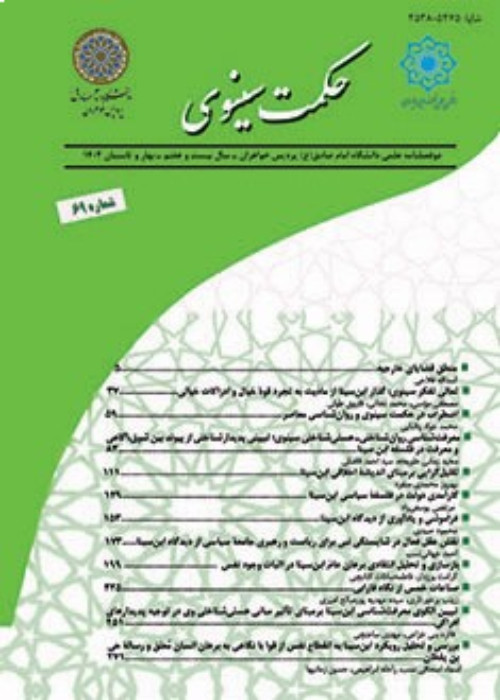The Study of Conflict between the Principle of Causality and Uncertainty Principle
Author(s):
Abstract:
The law of causality is one of the most important concepts in philosophy which all the aspects of human life testifies to this point; other sciences have also accepted it a self – evident principle, because without using this law we can not justify the events and phenomena of the universe and to propose theories about it.In spite of the extraordinary importance of the law of causality, throughout the history many doubts have been advanced against it, including the most recent one which has been advanced by the twentieth century physicists – that is, physicists following the Copenhagen school who are the originators of the principle of uncertainty. On the basis of certain empirical experiments, they have considered the uncertainty principle in conflict with the law of causality, hence they have denied the law of causality. Whereas the basic root of this denial goes back to the insufficiency of the concept of causaulity in their mind. The gross mistake of the supporters of uncertainty principle is that they base a metaphysical conclusion on certain physical experiments.
Language:
Persian
Published:
Avicennian Philosophy, Volume:11 Issue: 36, 2007
Page:
115
magiran.com/p477287
دانلود و مطالعه متن این مقاله با یکی از روشهای زیر امکان پذیر است:
اشتراک شخصی
با عضویت و پرداخت آنلاین حق اشتراک یکساله به مبلغ 1,390,000ريال میتوانید 70 عنوان مطلب دانلود کنید!
اشتراک سازمانی
به کتابخانه دانشگاه یا محل کار خود پیشنهاد کنید تا اشتراک سازمانی این پایگاه را برای دسترسی نامحدود همه کاربران به متن مطالب تهیه نمایند!
توجه!
- حق عضویت دریافتی صرف حمایت از نشریات عضو و نگهداری، تکمیل و توسعه مگیران میشود.
- پرداخت حق اشتراک و دانلود مقالات اجازه بازنشر آن در سایر رسانههای چاپی و دیجیتال را به کاربر نمیدهد.
In order to view content subscription is required
Personal subscription
Subscribe magiran.com for 70 € euros via PayPal and download 70 articles during a year.
Organization subscription
Please contact us to subscribe your university or library for unlimited access!


